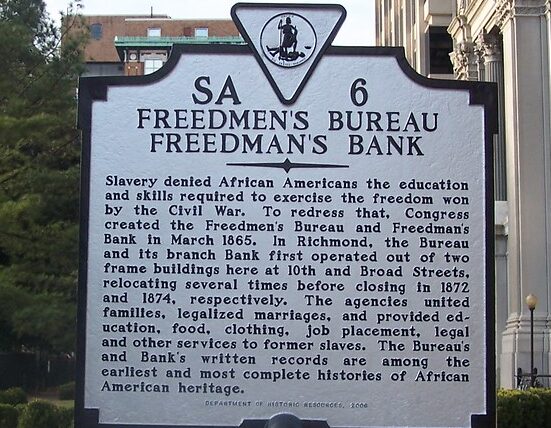The Freedman’s Bureau was supposed to provide wealth to the newly freed slaves after the Civil War ended. Instead, it failed. The result of its collapse is still impacting Black Americans in the U.S. some 150 years later. Award-winning journalist and author Rodney A. Brooks examines the bank’s history in the new book, The Rise and Fall of the Freedman’s Savings Bank, And Its Lasting Socio-Economic Impact On Black America, (Spiramus Press, March 12, 2024).
The book tells the story of the bank created just after the end of the Civil War to provide an opportunity for formerly enslaved and Black war veterans to save and gain financial knowledge. Sometimes known as the nation’s first “Black Bank,” the bank was created by U.S. Congress with little oversight and controlled by a board composed of 50 white men. The bank failed just nine years later, done in by incompetence, corruption and a worldwide depression.
With that failure came the loss of the savings of its most vulnerable customers – the newly freed slaves who had trusted the Freedman’s Bank with their life savings. Brooks says, “the collapse of the Freedman’s Savings Bank during a period that was critical to the growth of America’s newest citizens was one of the elements that led to the nation’s persistent racial wealth gap. The millions lost by the Black customers, many of whom had been free for less than a decade, meant that millions of dollars that could not be used to buy property, build homes and provide an education for their children.”
Imagine if that wealth and financial knowledge had been passed down through generations, helping Black Americans teach future generations to build wealth by passing down financial knowledge to their children and grandchildren.
And, just as the Tuskegee experiments on Black men led to an unwavering distrust of the American health care system decades later, the failure of the Freedman’s Bank resulted in a distrust of banks and financial institutions that still exists today. “The closing of the Freedman’s Bank did much more than shatter the dreams of former slaves and freedmen – including Frederick Douglass, who brought in an unsuccessful last-ditch effort to save the bank. It left 61,144 depositors with losses of nearly $3 million (more than $80 million


